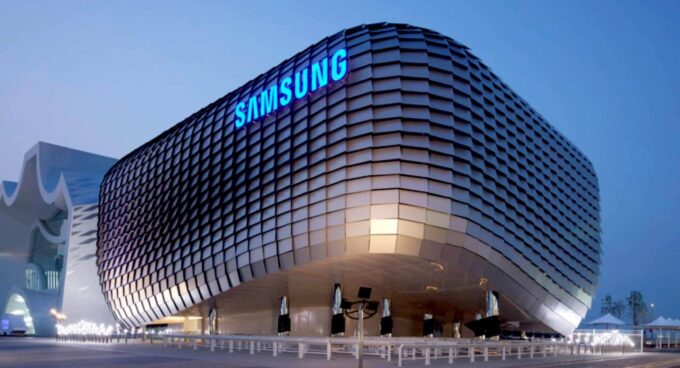
How to manage power dynamics in high-stakes negotiations
Former FBI agent Joe Navarro explains how to leverage non-verbal cues, manage power dynamics, and build trust to overcome deadlocks in negotiations....

by Arturo Bris, Misiek Piskorski Published September 20, 2023 in Competitiveness • 5 min read
In an era where nations vie for supremacy in global economics, South Korea has emerged as a significant player with a powerful influence not only domestically but worldwide.
Its conglomerates, involved in sectors vital to national security and industrial strategy – including semiconductors, electric vehicle batteries, biotech, and telecoms – play a pivotal role not just within its borders but across the international stage. The US is actively courting South Korean chipmakers and battery manufacturers through generous subsidies, although with the stipulation that they loosen ties with their considerable Chinese market.
South Korea’s global champions and wider economy offer abundant lessons for global business leaders, highlighting strategies to attain and sustain competitiveness.
The East Asian nation’s economic competitiveness is underpinned by several crucial factors. Foremost among these is the remarkable strength of its private sector, renowned for its innovation. This sector encompasses a spectrum of enterprises, from industry giants like Hyundai and Samsung to a thriving ecosystem of small and medium-sized enterprises (SMEs), that collectively form the backbone of the nation’s economic fabric. This coexistence of corporate titans and SMEs contributes significantly to South Korea’s economic prowess.
The country’s digital competitiveness is also strong, a significant catalyst for economic transformation across businesses, government, and society at large. In IMD’s World Digital Competitiveness Ranking, South Korea is placed eighth globally, reflecting its favorable digital mindset and the access to capital. The private sector and citizens are extremely accepting of technology, fostering a vibrant digital culture.
The nation also boasts well-developed digital infrastructure and ranks highly in “future readiness”, or the level of preparedness to exploit digital transformation, coming second globally only to Denmark, according to the IMD World Digital Competitiveness Ranking.
Nevertheless, there are areas where South Korea’s competitiveness is lagging global peers, most notably in the realm of talent attraction and retention, both domestically and internationally. While the nation enjoys a thriving digital business culture, it bears a conservative disposition rooted more in knowledge than practical experience.
Consequently, South Korea does not attract talent as readily, owing to a confluence of cultural, linguistic, and geographical barriers, resulting in talent emigration or an inability to attract foreign talent. This is reflected in the IMD World Talent Ranking, where South Korea stands at 38th overall among 63 countries, scoring lower still in attracting foreign highly skilled personnel (ranked 49th) and international experience of managers (ranked 59th).

In addition, South Korea’s public sector has often struggled to match the pace set by its private sector. This stands in contrast with countries like Singapore, renowned for its proactive government intervention. In South Korea, the thriving private sector coexists with a bureaucracy often characterized by inefficiencies, while the nation contends with persistently elevated levels of corruption.
Nonetheless, South Korea’s economic competitiveness hold lessons for leaders of organizations worldwide.
One crucial lesson is the significance of nurturing “national champions” – leading companies in their respective industries with a strong global presence, substantial market share, and influence beyond their own borders. These champions play a pivotal role in enhancing a country’s economic competitiveness. For instance, South Korea boasts national champions like Samsung, a major player in consumer electronics, and Hyundai, a dominant force in the automotive industry. These companies are strategically important.
Another resounding theme that emerges is specialization. Numerous case studies have demonstrated the effectiveness of focused industrial policies that prioritize specialization. South Korea may not achieve supremacy in sectors like semiconductors, akin to Taiwan, but it excels in areas like steel production and aluminum, thereby achieving differentiation and a competitive edge.
Although these policies have unequivocally contributed to the success of South Korea, they also created several issues for the country to solve. For example, many skilled individuals aspire to work for giants like Samsung, which leaves SMEs, which constitute a substantial portion of the economy, struggling with labor shortages and diminished competitiveness. To solve this problem, South Korea needs to encourage these enterprises to become more productive so that they can offer higher salaries, which will in turn attract higher-caliber talent.
And here lies the lesson for global leaders: industrial policies of specialization and nurturing national champions need to be accompanied by explicit policies of fostering modernization of SMEs, particularly in the services sector. We see this explicitly in countries like Switzerland, which is home to corporate titans such as Nestlé, UBS, and Novartis, but also features a booming SME sector which provides employment to a vast majority of the Swiss workforce. It is the joint success of the large companies and SMEs that allows the country to flourish.
Misiek Piskorski spoke at the World Knowledge Forum in Seoul, which took place on 12-14 September. The theme of this year’s forum was Techno Big Bang: Humanity on the Shoulders of Giants.

Professor of Finance at IMD
Arturo Bris is Douglas Geertz IMEDE 1988 Professor in Geopolitics and Business and Professor of Finance at IMD. Since January 2014, he has led the world-renowned IMD World Competitiveness Center. At IMD, Bris directs the Boards and Risks program and Blockchain and the Future of Finance program. He also previously directed the flagship Advanced Strategic Management program between 2009 and 2013.

Professor of Digital Strategy, Analytics and Innovation and Dean of Executive Education
Mikołaj Jan Piskorski, who often goes by the name Misiek, is a Professor of Digital Strategy, Analytics and Innovation and the Dean of Executive Education, responsible for Custom and Open programs at IMD. Professor Piskorski is an expert on digital strategy, platform strategy, and the process of digital business transformation. He is Co-Director of the AI Strategy and Implementation program.

May 6, 2025 • by Anna Cajot in Competitiveness
Former FBI agent Joe Navarro explains how to leverage non-verbal cues, manage power dynamics, and build trust to overcome deadlocks in negotiations....

April 24, 2025 • by Jerry Davis in Competitiveness
Many regional developers have tried and failed to emulate Silicon Valley’s VC-driven model for innovation. Detroit, the birthplace of Ford, is following an alternative route – with promising results....
 Audio available
Audio available
April 16, 2025 • by Benoit F. Leleux in Competitiveness
How a private equity-backed corporate carve-out created a successful, sustainable consulting powerhouse...

April 11, 2025 • by Jim Pulcrano, Jung Eung Park, Christian Rangen in Competitiveness
Founders searching for funding must be targeted in their approach to securing a lead investor. A global survey of VCs offers valuable insights into what makes them tick....
Explore first person business intelligence from top minds curated for a global executive audience